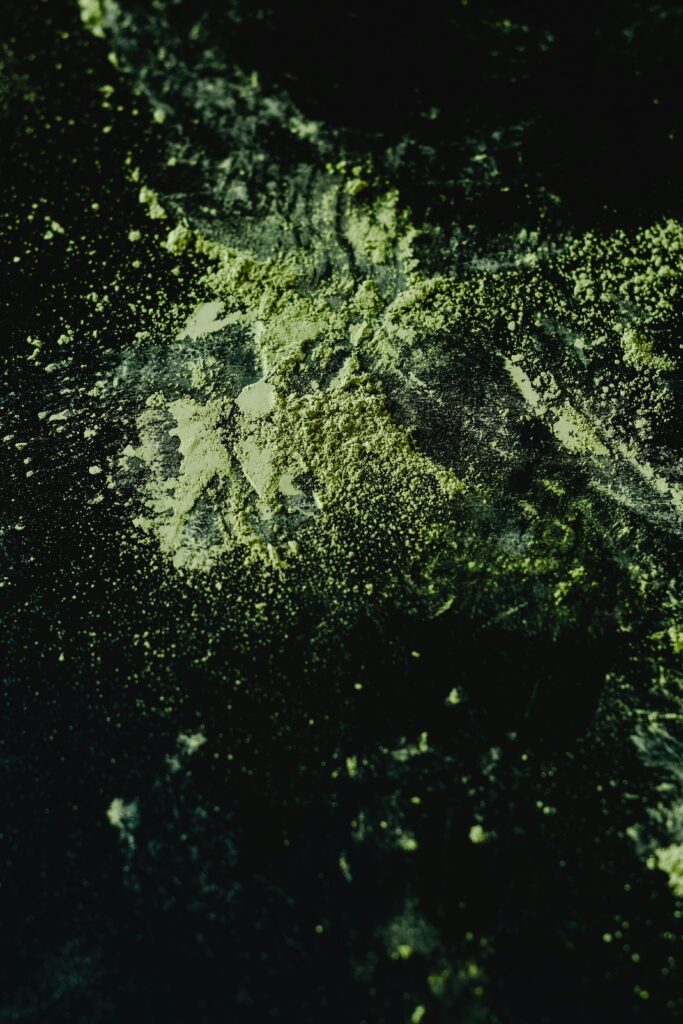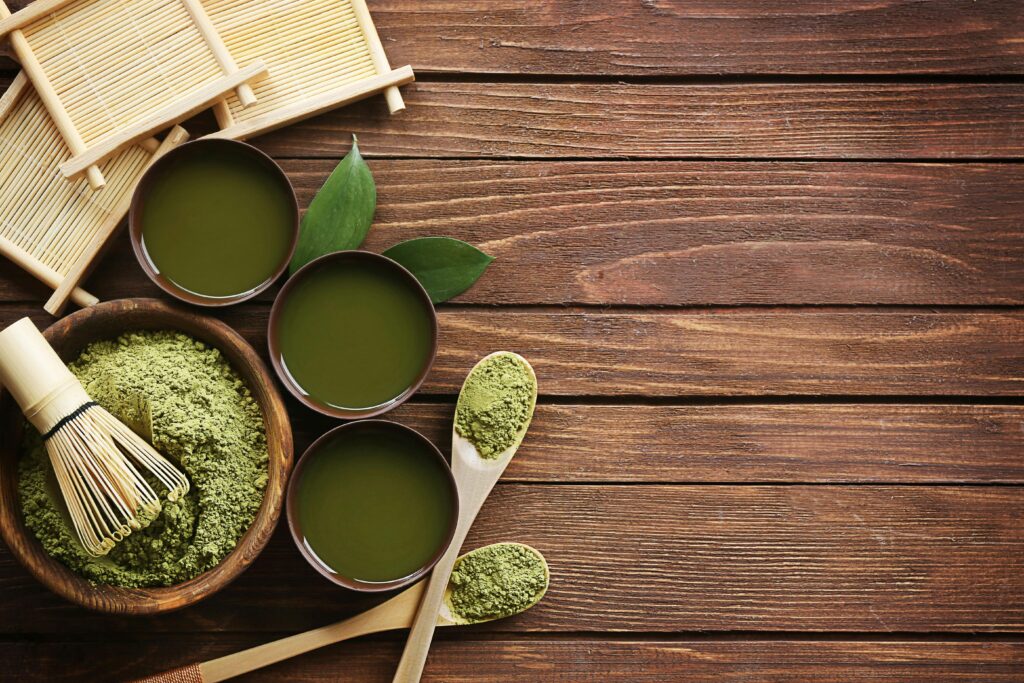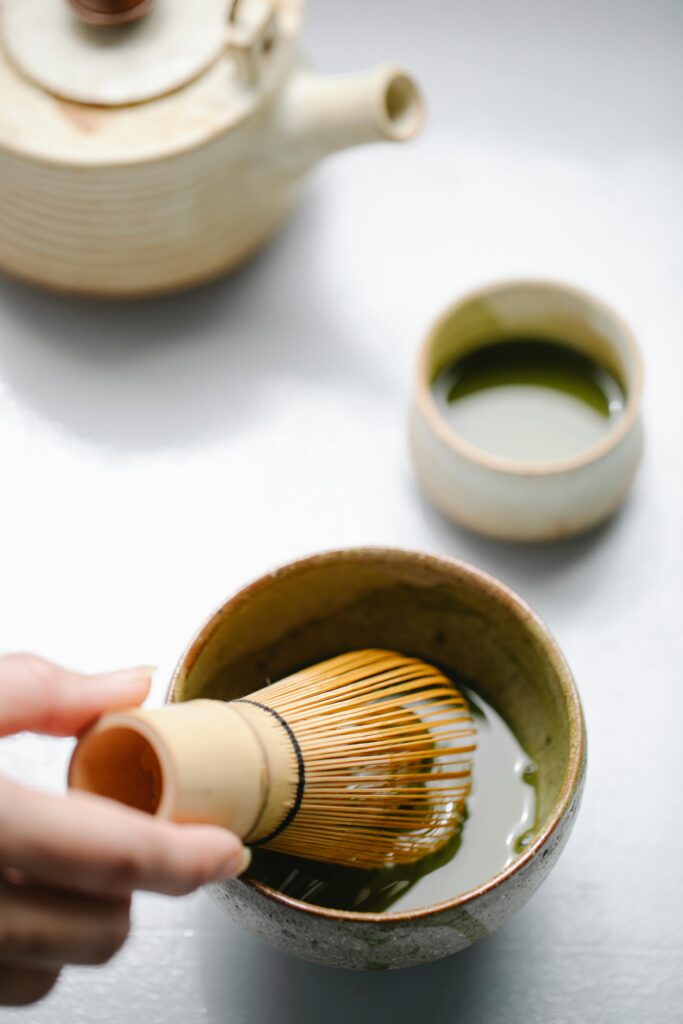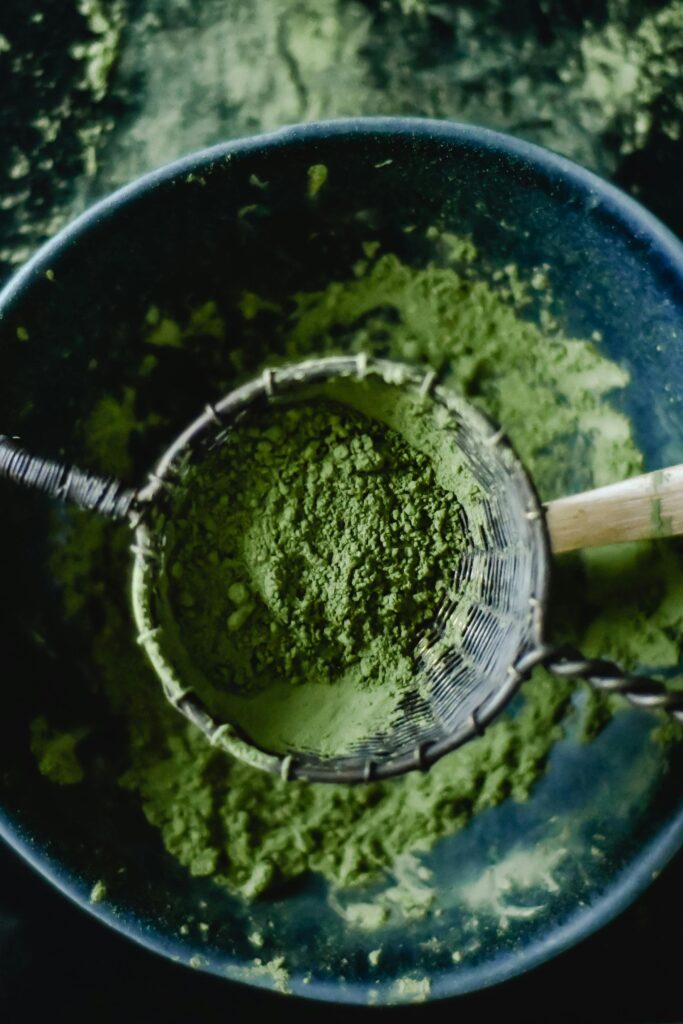Myth-Busting Common Matcha Claims
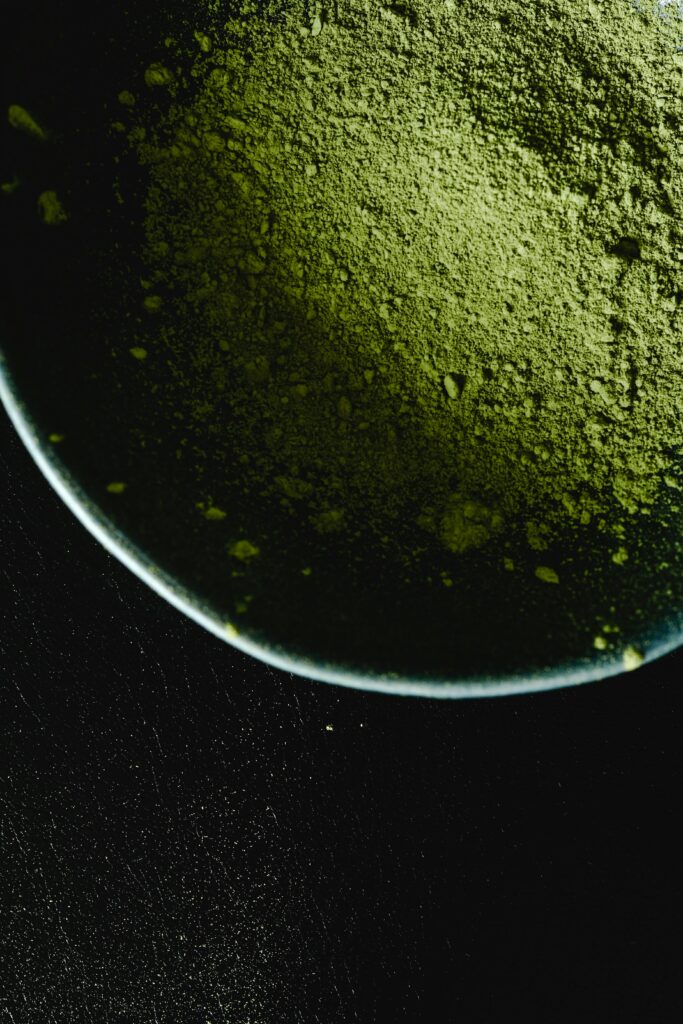
The “Detox” Myth Requires Nuance
“Matcha detoxifies your body” appears frequently in marketing, but this claim oversimplifies complex biochemistry. Your liver and kidneys continuously filter and eliminate toxins—this is true. However, research shows matcha’s high chlorophyll content does possess specific biochemical properties that may support these natural processes, particularly in binding certain compounds like heavy metals and endocrine-disrupting chemicals.
The confusion stems from the gap between laboratory evidence and clinical proof. Test-tube studies demonstrate chlorophyll can bind specific toxins, and matcha contains significantly higher chlorophyll levels due to shade-growing techniques. But direct clinical evidence proving matcha “detoxifies” the human body remains limited. The fiber in matcha does support regular bowel movements and normal waste elimination, though any fibrous food provides similar benefits.
The Reality: Matcha may biochemically support your liver’s natural detoxification processes, but it doesn’t replace or dramatically enhance what your organs already accomplish. Calling it a “detox miracle” stretches scientific evidence beyond what current research supports.
Weight Loss: Modest But Measurable Effects
“Burn more calories with matcha!” This claim contains more truth than marketing skeptics might expect. Clinical and animal studies published in peer-reviewed journals demonstrate matcha can improve lipid profiles, enhance glucose metabolism, and reduce inflammation. Research shows green tea catechins increase metabolic rate by approximately 4-8% for several hours—modest but measurable.
A 2022 systematic review found matcha supplementation associated with reductions in body weight, BMI, waist circumference, and fat mass. The mechanisms include enhanced fat oxidation, increased energy expenditure, and beneficial modulation of gut microbiota. Studies typically show 1-2 kg additional loss over 12 weeks when combined with diet and exercise.
- Enhanced fat oxidation during physical activity
- Modest increase in resting metabolic rate lasting several hours
- Improved glucose metabolism supporting weight management
- Positive effects on gut microbiota composition
The critical caveat: matcha works adjunctively within comprehensive weight management programs. It provides metabolic support but doesn’t overcome caloric excess or sedentary behavior. Marketing often implies matcha alone melts fat regardless of lifestyle—this misrepresents the science. Think of matcha as a supportive player, not the star athlete in weight management.
Cancer Prevention: Promising Research, Not Proven Protection
“Matcha prevents cancer” oversimplifies genuinely promising but preliminary research. Laboratory studies show EGCG (epigallocatechin gallate), matcha’s primary catechin, inhibits cancer stem cell propagation by targeting mitochondrial metabolism. Research demonstrates anti-tumor effects and apoptosis induction in various cancer cell lines in vitro and in animal models.
Epidemiological evidence suggests populations consuming green tea regularly show reduced risk for certain cancers. However, these population studies can’t prove causation—genetics, overall diet quality, healthcare access, and lifestyle factors create confounding variables. The concentrations used in laboratory studies often far exceed what humans achieve through normal consumption.
Currently, no major cancer organization recommends matcha or green tea as standalone cancer prevention, though research continues exploring its potential role in comprehensive cancer risk reduction strategies.
Matcha’s high antioxidant and anti-inflammatory content likely contribute to its potential cancer-preventive properties. The science supports viewing matcha as one component of an overall healthy lifestyle that may reduce cancer risk, not as a magical shield against disease. The distinction between “may support cancer risk reduction” and “prevents cancer” matters enormously.
“Natural Energy” Contains Real Science
“Natural energy without crashes” reflects genuine biochemistry, though individual experiences vary significantly. Matcha contains both caffeine (approximately 70mg per serving) and L-theanine, an amino acid that modulates caffeine’s effects. Research demonstrates this combination produces synergistic benefits: enhanced cognitive function, sustained focus, improved alertness, and reduced stress compared to caffeine alone.
L-theanine promotes relaxation without drowsiness and reduces caffeine-induced jitteriness in many people. Studies show matcha’s combined caffeine and L-theanine intake improves work performance and attention better than equivalent caffeine doses alone. This explains why many users report smoother, more sustained energy compared to coffee.
Important Caveats About Caffeine
Matcha absolutely contains caffeine—calling it “natural” doesn’t change its stimulant properties. The same physiological effects occur: increased heart rate, potential sleep disruption if consumed late, and possible withdrawal symptoms with regular use. Individual genetics determine caffeine metabolism, meaning some people experience jitters and crashes from matcha identical to coffee, regardless of L-theanine content.
The “no crash” claim applies to many users when comparing equivalent caffeine doses, but not universally. Some consumers drink multiple servings seeking stronger effects, which can overwhelm L-theanine’s moderating influence. Understanding your personal caffeine sensitivity remains crucial regardless of the source.
Evidence-Based Benefits Worth Celebrating
Stripping away exaggeration reveals matcha offers legitimate, research-supported benefits worthy of inclusion in healthy lifestyles. These realistic advantages speak for themselves without requiring miraculous claims:
- Exceptional antioxidant content: Matcha provides concentrated catechins, particularly EGCG, supporting cellular health and reducing oxidative stress
- Cognitive enhancement: The caffeine-L-theanine combination improves memory, focus, and alertness with potentially fewer side effects than coffee
- Cardiovascular support: Research indicates improved lipid metabolism and reduced inflammation markers
- Metabolic benefits: Modest but measurable support for glucose metabolism and fat oxidation
- Liver function support: Biochemical properties may assist natural detoxification processes
- Mindfulness ritual: Traditional preparation encourages present-moment awareness and stress reduction
These benefits emerge from moderate consumption—typically 1-2 servings daily. Excessive intake may produce side effects including caffeine-related issues, digestive discomfort, or iron absorption interference.
Setting Realistic Expectations
Approaching matcha with evidence-based understanding allows you to enjoy genuine benefits without disappointment from unmet miraculous promises. Be appropriately skeptical of claims suggesting matcha cures diseases, replaces medical treatment, causes significant weight loss independently, completely detoxifies beyond normal elimination, or provides life-changing benefits overnight.
Quality matcha enhances healthy lifestyles but doesn’t replace fundamental health practices. It works synergistically with balanced nutrition, regular physical activity, adequate sleep, effective stress management, and appropriate medical care. Think of matcha as a valuable supporting actor in your health journey, not the protagonist.
Questions to Ask When Evaluating Claims
Protect yourself from misleading marketing by asking critical questions. Does the claim cite peer-reviewed research or vague “studies show” language? Are benefits described as “may support” or guaranteed outcomes? Does the source acknowledge limitations and individual variation? Are lifestyle factors mentioned alongside matcha consumption?
Understanding actual capabilities versus marketing myths enables you to incorporate matcha appropriately and enjoyably into your routine. The real matcha—with its genuine antioxidant content, cognitive benefits, and metabolic support—deserves appreciation without requiring exaggeration. Honest assessment of the science reveals a beverage worthy of attention for what it actually offers, not what marketers wish it provided.
Frequently asked questions
We’re here to help with all your questions and answers in one place. Can’t find what you’re looking for? Reach out to our support team directly.
Does matcha actually detoxify your body?
No, matcha doesn’t detoxify your body in any meaningful way beyond what your organs already do. Your liver and kidneys continuously filter and eliminate toxins—no food can enhance this natural process. The chlorophyll in matcha provides green color but doesn’t cleanse blood or eliminate toxins despite what marketing suggests.
Matcha does contain fiber that supports regular bowel movements, but calling this detox stretches the definition. Any fibrous food offers similar benefits. True detoxification happens in your liver, not your teacup.
Can drinking matcha help me lose weight?
Matcha can provide modest metabolic support, but it’s not a weight loss solution on its own. Research shows green tea catechins increase metabolic rate by about 4-8% for a few hours—hardly dramatic. The increased fat oxidation during exercise is real but small, equivalent to walking an extra five minutes.
Clinical trials typically find 1-2 kg additional loss over 12 weeks when combined with diet and exercise. Matcha might support weight management within a program that includes caloric deficit and physical activity, but no drink overcomes excessive calorie consumption or sedentary behavior.
Does matcha prevent cancer?
No, matcha doesn’t prevent cancer, and this claim dangerously oversimplifies complex research. While test-tube studies show EGCG can affect cancer cells, these use concentrations far exceeding what humans can achieve through consumption. The leap from petri dish to living humans ignores the enormous complexity of cancer development.
Population studies finding lower cancer rates among tea drinkers can’t prove causation—these groups often have different genetics, diets, healthcare access, and lifestyles. No major cancer organization recommends matcha as cancer prevention. Matcha may contribute to a healthy lifestyle that reduces cancer risk, but it’s not a shield against disease.
Is matcha's energy boost really different from coffee?
Matcha contains caffeine—calling it natural doesn’t change its stimulant properties. You’ll experience the same physiological effects: increased heart rate, potential sleep disruption, and possible withdrawal symptoms. The claim that L-theanine provides energy without crashes contains partial truth but requires context.
L-theanine may moderate caffeine effects compared to coffee when using equivalent doses. However, individual genetics determine caffeine metabolism—some people experience jitters and crashes from matcha identical to coffee, regardless of L-theanine content. Natural doesn’t mean without effects or universally tolerable.
How much caffeine does matcha actually contain?
Matcha absolutely contains caffeine, typically 70mg per serving (about one teaspoon of powder). That’s comparable to espresso and more than regular brewed green tea. Many people consume multiple servings seeking stronger effects, which increases caffeine intake.
The combination of caffeine with L-theanine may create smoother energy for some people, but this varies by individual. If you’re sensitive to caffeine or drink matcha late in the day, you might still experience sleep disruption despite the L-theanine.
What are the realistic benefits I can expect from matcha?
Matcha offers genuine, research-supported benefits worth incorporating into healthy lifestyles. You’ll get a unique combination of caffeine with L-theanine for potentially smoother energy, plus a concentrated source of tea catechins and antioxidants. It may provide modest support for metabolism and cognitive function, and the ritual itself can promote mindfulness.
Be skeptical of claims suggesting matcha cures diseases, replaces medical treatment, causes weight loss alone, or detoxifies beyond normal elimination. Quality matcha enhances a healthy lifestyle but doesn’t replace balanced nutrition, regular physical activity, adequate sleep, stress management, and medical care when needed.
Discussion: Myth-Busting Common Matcha Claims
